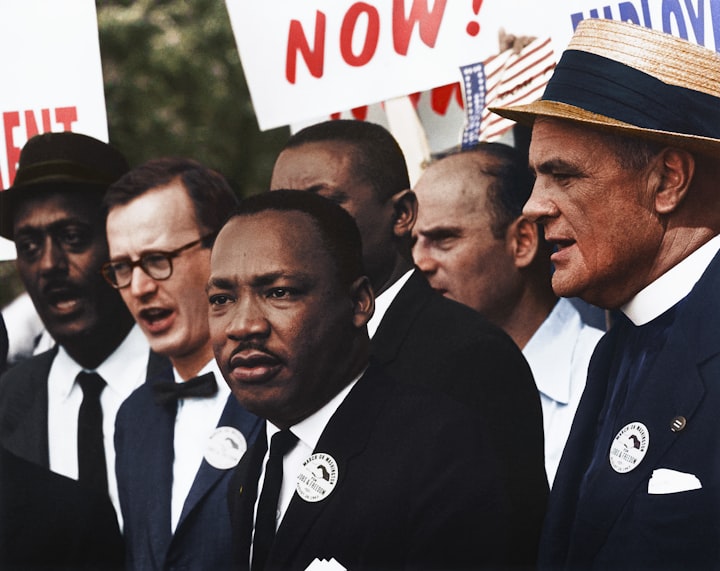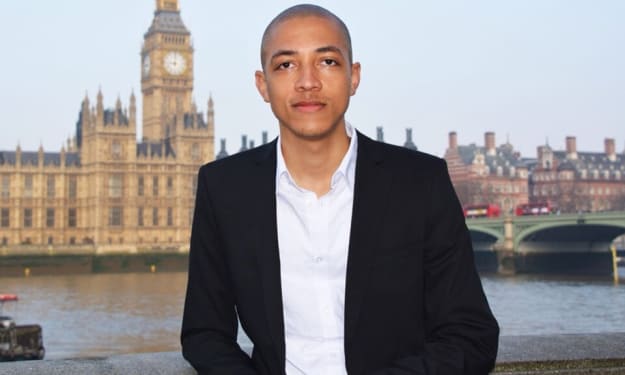Why We Need a New Civil Rights Act
Black History Month Musings

Martin Luther King would have been truly disappointed that nearly 60 years since the passing of the 1964 Civil Rights Act, Americans of African descent continue to be relegated to the status of third-class citizens, marked out for unequal treatment, harassment, and worse. What’s more, this awful situation extends to many other countries; in 2023, we’re living in the midst of a pervasive global anti-Blackness.
60 years on, still no meaningful freedom
Although America prides itself on its commitment to “freedom,” those who haven’t been living under a rock over the last few years, know perfectly well that there is no meaningful freedom for African Americans and other visible minorities. The latest police brutality videos that are shared on social media every day demonstrate the grim reality that basic civil rights to life and liberty continue to be violated in mind-boggling numbers.
Indeed, it could be argued that the business-as-usual slayings of Black people in the 2020s are not so different from the public lynchings during Jim Crow. The only difference is that while the Jim Crow system was openly anti-Black, modern day human rights violations are made to look as if they are race-neutral. For all we know, the number of racially-motivated homicides of Black people today could be higher than it was under Jim Crow.
Furthermore, Black people continue to suffer injustices in every area of society, whether it’s working, learning, banking, driving, traveling, shopping, accessing healthcare, and - as we have seen too many times - even breathing. While Jim Crow may have ended officially in 1964, it seems that the spirit of Jim Crow continues to haunt America; it has simply morphed into an insidious, colorblind, equally toxic form of oppression.
The “Jim Crow Mindset” is Still a Thing
In 1967, MLK eloquently stated that “the time is always right to do what is right,” however, this message continues to be ignored in 2023. Today, the Jim Crow-esque attitude that Black people should be forever patient about injustice stubbornly persists. For example, only a few days ago, I came across an article written by a liberal author who implied that society is not ready for racial progress because her friends are uncomfortable about discussing racism. Like it or not, this way of thinking demonstrates the feelings of many liberals who have shown time and again that they have no sincere interest in authentic racial justice.
Moreover, too many Black liberals in the race relations industry are unwilling to put their heads above the parapet. To give an example, on various platforms, I personally have tried to draw attention to a horrific case regarding a missing Black filmmaker using an article that I originally published in September 2022. (This is a story which has been, and continues to be, wilfully underreported and mistold.)
With the exception of Attorney Ben Crump (who kindly shared the article on several platforms), and a few other people of integrity on LinkedIn, there has been a pitiful lack of engagement from self-described antiracist activists (both public and non-public figures) who could have significantly amplifed the story via their social media networks, but chose not to.
Thus, in its various forms, the “Jim Crow mindset” helps to fuel the pathetic lack of progress — year after year, decade after decade, century after century.
We need real change — a few more thoughts

First, let’s not be afraid to put our heads above the parapet. To give another example, it’s time to stop diluting messages to placate liberal audiences; all too often, activists are minimizing experiences of racial discrimination by combining them with other forms of discrimination. For example, I regard the buzz phrase “this happened to me because I am Black and a woman,” as problematic and disingenuous when it is perfectly obvious that the incident would have also happened to a Black man (and would not have happened to a White woman).
Second, let’s face up to the fact that diversity, equity and inclusion training is completely dependent on the goodwill of the people who receive the training, and on its own will achieve nothing. We need so much more than this to tackle the deeply rooted systemic injustices in society.
Third, it’s important to understand that the civil rights legislation of the 1960s is woefully inadequate. If there is to be legitimate progress, the legislation needs to be expanded and strengthened in all areas of social life by reducing discretionary powers and increasing accountability for those who engage in discriminatory practices.
In short, we need a new law. We also need to face the hard truth that MLK articulated so well:
“Freedom is never voluntarily given by the oppressor; it must be demanded by the oppressed.” (1963)
Next year will mark the 60th anniversary of the 1964 Civil Rights Act; let’s demand a new Act to bring about meaningful racial justice.
Copyright © Clare Xanthos 2023
About the Creator
Clare Xanthos
Writer, scholar and researcher specializing in racial equity, racial health equity and racial justice. Co-editor of: "Social Determinants of Health among African-American Men." PhD in Social Policy (London School of Economics).






Comments
There are no comments for this story
Be the first to respond and start the conversation.